10 States That Are Surprisingly 'Rich' in Millionaires

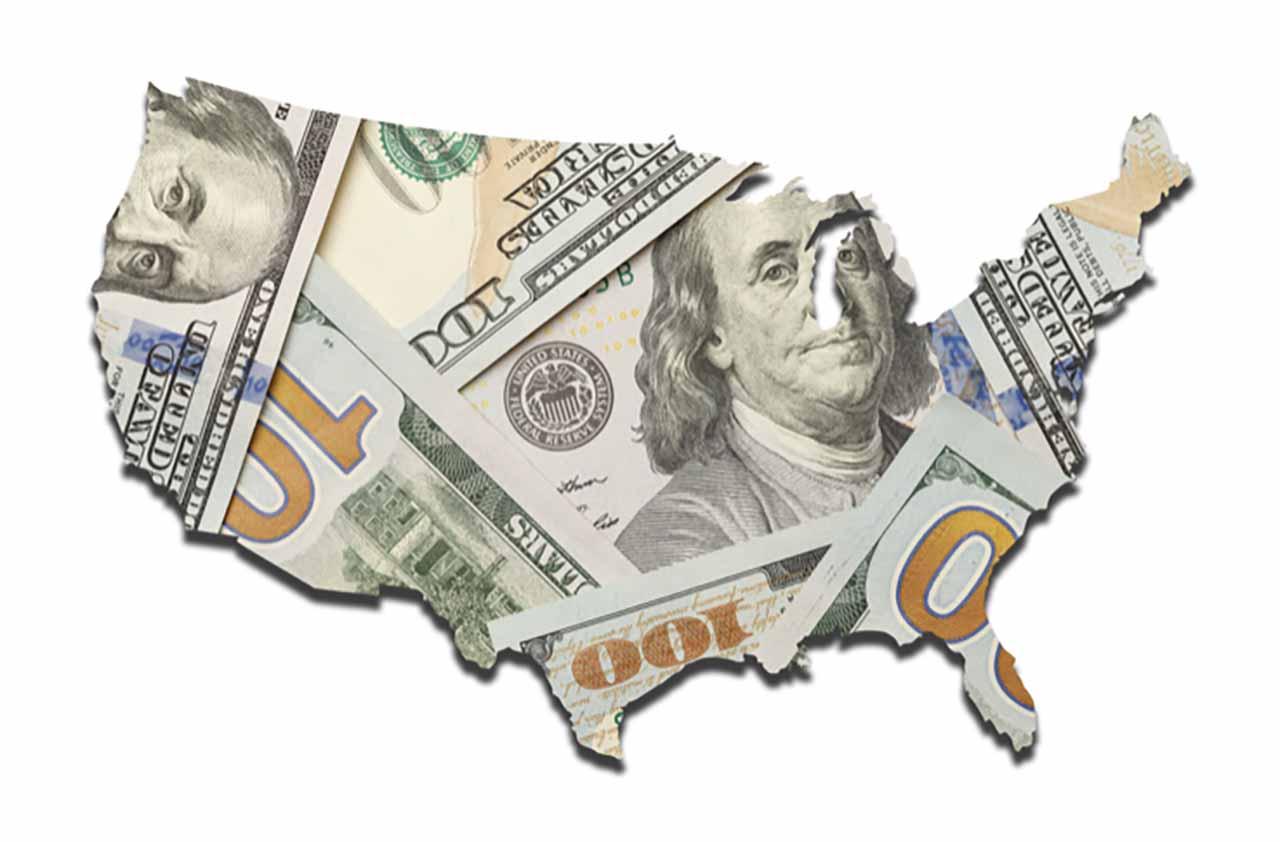
Profit and prosper with the best of Kiplinger's advice on investing, taxes, retirement, personal finance and much more. Delivered daily. Enter your email in the box and click Sign Me Up.
You are now subscribed
Your newsletter sign-up was successful
Want to add more newsletters?

Delivered daily
Kiplinger Today
Profit and prosper with the best of Kiplinger's advice on investing, taxes, retirement, personal finance and much more delivered daily. Smart money moves start here.

Sent five days a week
Kiplinger A Step Ahead
Get practical help to make better financial decisions in your everyday life, from spending to savings on top deals.

Delivered daily
Kiplinger Closing Bell
Get today's biggest financial and investing headlines delivered to your inbox every day the U.S. stock market is open.

Sent twice a week
Kiplinger Adviser Intel
Financial pros across the country share best practices and fresh tactics to preserve and grow your wealth.

Delivered weekly
Kiplinger Tax Tips
Trim your federal and state tax bills with practical tax-planning and tax-cutting strategies.

Sent twice a week
Kiplinger Retirement Tips
Your twice-a-week guide to planning and enjoying a financially secure and richly rewarding retirement

Sent bimonthly.
Kiplinger Adviser Angle
Insights for advisers, wealth managers and other financial professionals.

Sent twice a week
Kiplinger Investing Weekly
Your twice-a-week roundup of promising stocks, funds, companies and industries you should consider, ones you should avoid, and why.

Sent weekly for six weeks
Kiplinger Invest for Retirement
Your step-by-step six-part series on how to invest for retirement, from devising a successful strategy to exactly which investments to choose.
Rising stock prices are boosting the number of millionaire households in the U.S., but when it comes to having at least seven figures in liquid assets on hand, millionaires are actually pretty rare.
Once you strip out things such as real estate (most folks’ wealth is tied up in their homes), employer-sponsored retirement plans and business partnerships, only 6.2% of all American households have investable assets of $1 million or more, according to Phoenix Marketing International, a firm that tracks the affluent market.
Not surprisingly, the states with the highest concentrations of millionaires also tend to have some of the highest incomes, home values and living expenses in the country. New York and California have lots of millionaires, you say? No kidding. They also have sky-high median household incomes and other pricey demographic indicators.
What’s more remarkable is when a state can manage to have a relatively high concentration of millionaires and relatively low costs at the same time.
Using data from Phoenix Marketing International and the U.S. census, we searched for states with median incomes and median home values well below national levels that still managed to support comparatively high concentrations (at least 5%) of millionaire households.
Here’s a look at 10 states with surprisingly high concentrations of millionaire households given their broader income and home value demographics. For perspective, we’re also providing important tax and cost-of-living information.
Estimates of millionaire households provided by Phoenix Marketing International, a firm that tracks the affluent market. Investable assets include education/custodial accounts, individually owned retirement accounts, stocks, options, bonds, mutual funds, managed accounts, hedge funds, structured products, ETFs, cash accounts, annuities and cash value life insurance policies. Data on household incomes and home values are from the U.S. Census Bureau. Living costs are based on the Council for Community and Economic Research’s Cost of Living Index. Tax information is as of 2018.

10. Wisconsin
- Millionaire households: 124,968
- Total households: 2,359,204
- Concentration of millionaires: 5.30%
- Median income for all households: $56,759
- Median home value: $169,300
Wisconsin punches well above its weight when it comes to the percentage of millionaire households in its midst. Median income and median home values are below the national average, and yet 124,968 of the Badger State’s 2.4 million households count as millionaires.
At the same time, a dollar goes farther in bucolic Wisconsin. The state’s overall cost of living is 7.3% below the U.S. average, according to the Council for Community and Economic Research’s Cost of Living Index.
Although living expenses are relatively affordable, taxes can be a bit of a burden.
Many Wisconsin residents will find themselves in the 6.27% bracket, which kicks in on income above just $22,900 for singles and $30,540 for joint filers. Property taxes also are high.

9. Nebraska
- Millionaire households: 40,549
- Total households: 764,862
- Concentration of millionaires: 5.30%
- Median income for all households: $56,675
- Median home value: $142,400
When it comes to the well-off and Nebraska, one name immediately comes to mind: Warren Buffett, chairman and CEO of Berkshire Hathaway (BRK.B), is the Cornhusker State’s richest – and most famous – resident. But while the Oracle of Omaha is clearly in a league of his own, Nebraska does have 40,549 other households with at least a million bucks in investable assets.
Fortunately, you don’t need millions to live well. Although median income in Nebraska is about $3,700 lower than the national level, the median home value is a whopping $75,200 cheaper. Overall, the cost of living in Nebraska is 10% less than what the average American pays.
When it comes to paying taxes, Nebraska is ranked as “not tax-friendly” by Kiplinger. True, the state has been making efforts to reduce its income tax bite, including creating a personal exemption credit in 2018 so the new federal tax law wouldn’t raise individuals’ state taxes. But property taxes are among the highest in the country.

8. Arizona
- Millionaire households: 142,085
- Total households: 2,637,329
- Concentration of millionaires: 5.39%
- Median income for all households: $53,510
- Median home value: $193,200
Arizona is a retirement haven, which helps boost its percentage of millionaire households.
The Grand Canyon State also happens to be one of Kiplinger’s top 10 most tax-friendly states for millionaires and non-millionaires alike. Although Arizona does have an income tax, the rates are notably low. If you’re a joint filer, you won’t hit the top bracket until your income is over $300,000. Sales taxes lean high, though, and some cities tax groceries.
Arizona is neither cheap nor expensive on a relative basis. The cost of living in the state is equal to the national average, according to the Council for Community and Economic Research’s Cost of Living Index. That’s despite having median income and median home values significantly below national levels.

7. Michigan
- Millionaire households: 214,315
- Total households: 3,944,777
- Concentration of millionaires: 5.43%
- Median income for all households: $52,668
- Median home value: $136,400
Michigan has a notably high concentration of millionaires given its well-below median household income and home values. The state is a standout when it comes to billionaires, too. According to Forbes, 10 folks with a net worth of at least 10 figures call the Great Lakes State home.
At the other end of the spectrum, Michigan is home to one of the least expensive cities in the U.S. The cost of living in Kalamazoo is 20.4% below the U.S. average. And Benton Harbor is one of the cheapest small towns in America. Altogether, the cost of living in Michigan is 14.1% less expensive than the national average.
Michigan’s tax situation is mixed. It’s one of just a handful of U.S. states with a flat tax – the rate is a modest 4.25%. But cities can levy income taxes as well. Property taxes, particularly in Detroit, are steep.

6. Georgia
- Millionaire households: 211,662
- Total households: 3,891,635
- Concentration of millionaires: 5.44%
- Median income for all households: $52,977
- Median home value: $158,400
With a cost of living 11.1% lower than the national average, a million dollars goes a bit further in the Peach State than elsewhere.
That’s due in part to Georgia having a median income more than $7,000 below the national level. Helpfully, the median home value is more than $59,000 below the U.S. median. At the same time, 211,662 out of almost 3.9 million Georgia households have at least $1 million in investable assets.
But taxes do take their bite. Georgia’s tax brackets mean that many taxpayers will find themselves paying the top marginal rate, which kicks in at just $10,000 of taxable income for married couples filing jointly or $7,000 for individual filers. Sales taxes lean high, and in some areas, groceries will be taxed as well.
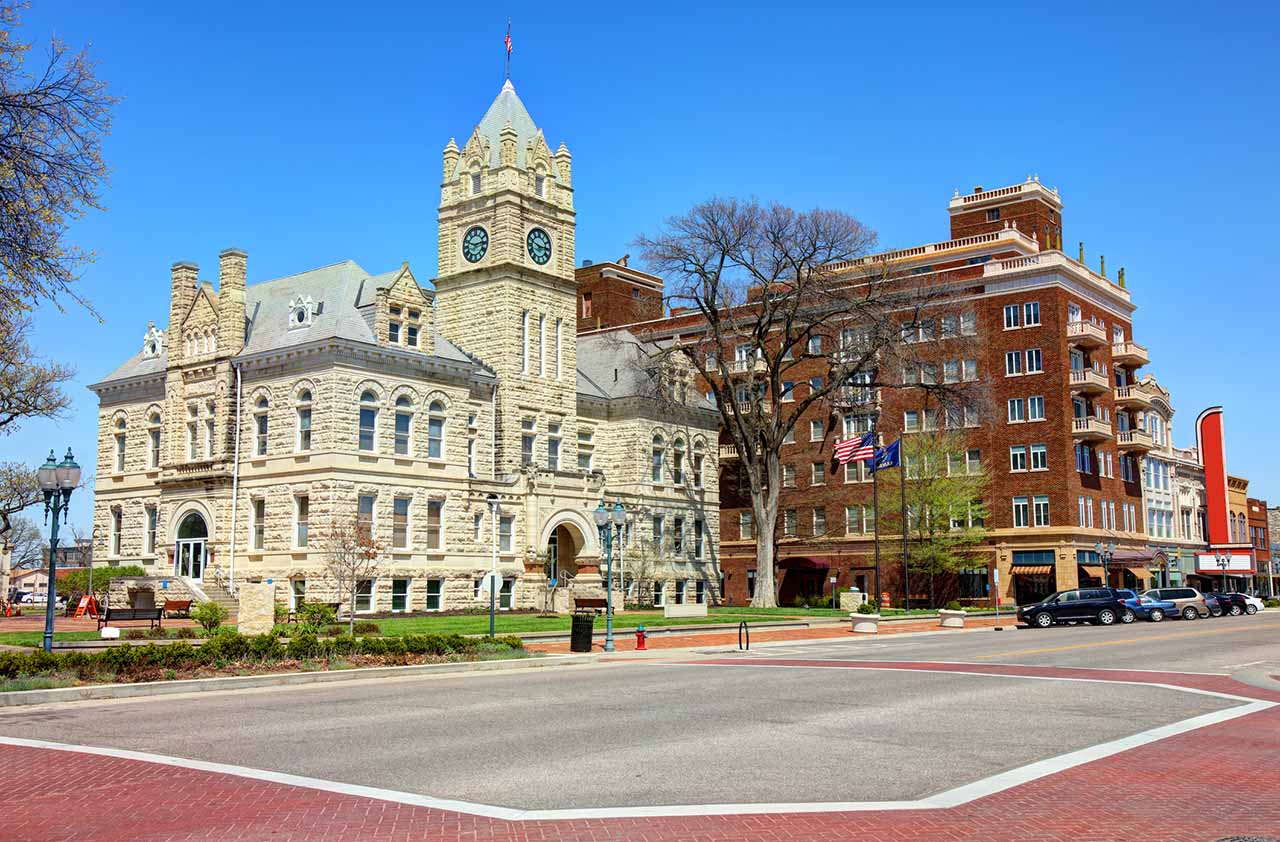
5. Kansas
- Millionaire households: 62,073
- Total households: 1,140,014
- Concentration of millionaires: 5.44%
- Median income for all households: $55,477
- Median home value: $139,200
Kansas is known more for affordable living than living high on the hog. Indeed, Salina and Pittsburg, Kansas, are two of the cheapest small towns in America. Statewide, the cost of living in Kansas is 11.3% less expensive than the national average.
Offsetting that somewhat is the fact that Kansas is not the friendliest state when it comes to taxes. Sales taxes are high (and are applied to groceries), and property taxes are steep, too. Taxes in Kansas aren’t kind to retirees, either.
Against that backdrop, the Sunflower State has 62,073 millionaire households out of a total of about 1.1 million households.
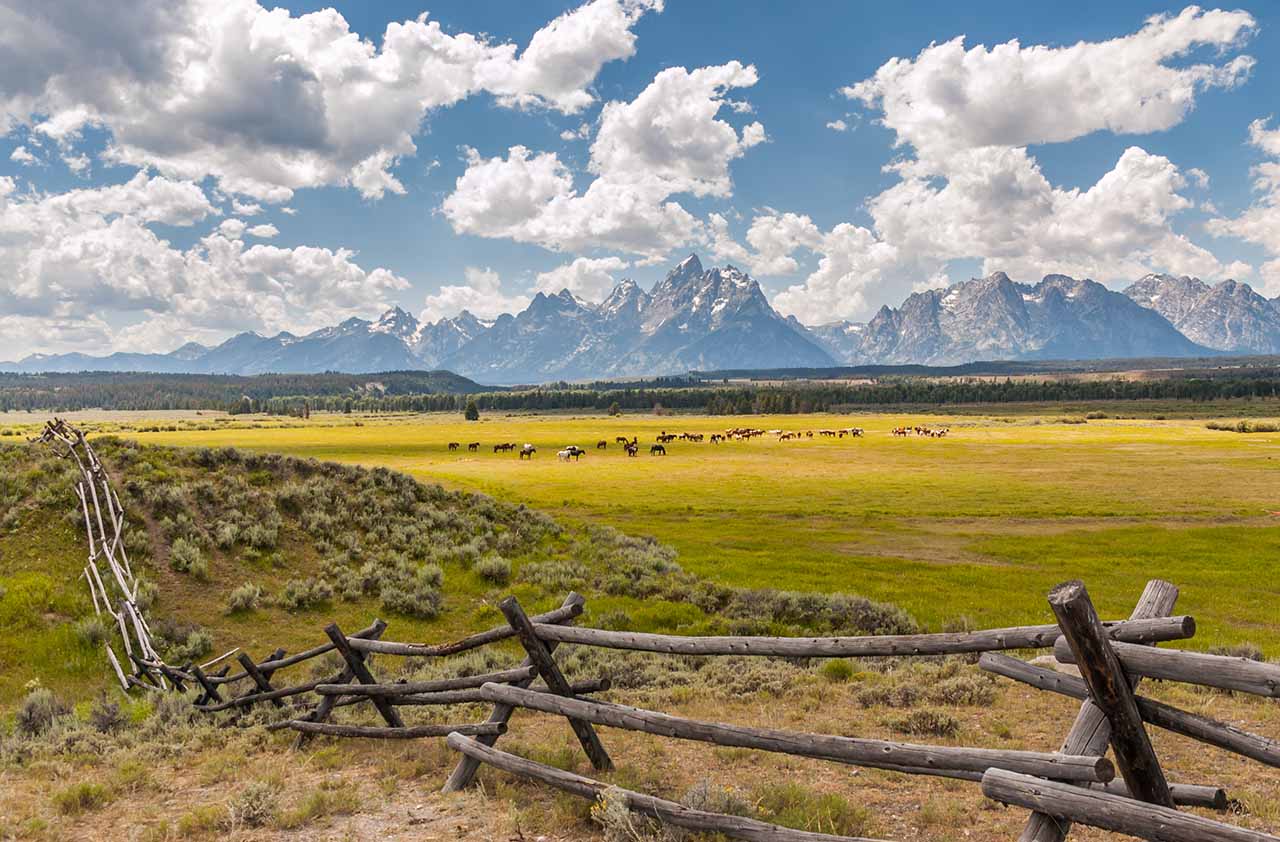
4. Wyoming
- Millionaire households: 13,130
- Total households: 239,441
- Concentration of millionaires: 5.48%
- Median income for all households: $60,938
- Median home value: $204,900
Wyoming might have the smallest population of any state, but it has one of the higher concentrations of millionaires, thanks to abundant natural resources and recreational activities.
Wyoming accounts for about 40% of the nation’s coal production, and the vast majority of the state’s output comes from the Gillette area, which has a high concentration of millionaires as a result. Wyoming’s famed Jackson Hole valley, with three major ski resorts and an abundance of other year-round recreational activities, also is a mecca for millionaires.
Thanks to abundant revenue that the state collects from oil and mineral rights, Wyoming millionaires shoulder one of the lowest tax burdens in the U.S.

3. North Dakota
- Millionaire households: 19,248
- Total households: 327,393
- Concentration of millionaires: 5.88%
- Median income for all households: $61,285
- Median home value: $174,100
The explosion in shale oil drilling has minted many a millionaire in North Dakota over the past decade. Indeed, small towns such as Dickinson and Williston, located in the oil-rich Bakken Formation, have some of the highest concentrations of millionaires in the U.S.
A rally in oil prices in 2019 has helped North Dakota hit record production levels. Indeed, the state is pumping out more oil than seven members of the Organization of Petroleum Exporting Countries (OPEC).
North Dakota is one of the nation’s tax-friendliest states. The Peace Garden State offers modest sales taxes that favor agriculture and has been cutting income taxes for several years in a row – to the point that they’re barely there. To top it off, the cost of living in is 2.9% lower than the national average.

2. Pennsylvania
- Millionaire households: 309,174
- Total households: 5,090,306
- Concentration of millionaires: 6.07%
- Median income for all households: $56,951
- Median home value: $170,500
More than 6% of Pennsylvania’s 5 million-plus households have investable assets of $1 million or more, excluding the value of real estate, employer-sponsored retirement plans and business partnerships.
That puts the state’s concentration of millionaires close to the national percentage, even as the cost of living in the Keystone State is 1.1% lower than the U.S. average, according to the Council for Community and Economic Research’s Cost of Living Index.
The Keystone State’s tax picture is mixed. It has a flat income tax rate of 3.07%, but municipalities can add to that with local earned income taxes. While sales taxes are relatively low, the state’s fuel, tobacco and alcohol taxes are notably high.

1. Texas
- Millionaire households: 622,065
- Total households: 10,131,556
- Concentration of millionaires: 6.14%
- Median income for all households: $57,051
- Median home value: $151,500
Everything is bigger in Texas. No, it doesn’t have the highest concentration of millionaires, but in terms of raw numbers, only California has more than the Lone Star State’s 622,065 millionaire households.
Heck, Texas is so big it not only has two of the smallest towns with the most millionaires in the U.S. – Andrews and Fredericksburg – but it’s also home to seven of the 25 cheapest U.S. cities in which to live. (Those would be Texarkana, Temple, Amarillo, Sherman, Wichita Falls, McAllen and Harlingen.)
On average, the cost of living in Texas is 8.7% lower than the U.S. average, according to the Council for Community and Economic Research’s Cost of Living Index.
Texas is a place of extremes when it comes to taxes, too. There’s no income tax at all. On the other hand, sales taxes run high, as do property taxes.
Profit and prosper with the best of Kiplinger's advice on investing, taxes, retirement, personal finance and much more. Delivered daily. Enter your email in the box and click Sign Me Up.

Dan Burrows is Kiplinger's senior investing writer, having joined the publication full time in 2016.
A long-time financial journalist, Dan is a veteran of MarketWatch, CBS MoneyWatch, SmartMoney, InvestorPlace, DailyFinance and other tier 1 national publications. He has written for The Wall Street Journal, Bloomberg and Consumer Reports and his stories have appeared in the New York Daily News, the San Jose Mercury News and Investor's Business Daily, among many other outlets. As a senior writer at AOL's DailyFinance, Dan reported market news from the floor of the New York Stock Exchange.
Once upon a time – before his days as a financial reporter and assistant financial editor at legendary fashion trade paper Women's Wear Daily – Dan worked for Spy magazine, scribbled away at Time Inc. and contributed to Maxim magazine back when lad mags were a thing. He's also written for Esquire magazine's Dubious Achievements Awards.
In his current role at Kiplinger, Dan writes about markets and macroeconomics.
Dan holds a bachelor's degree from Oberlin College and a master's degree from Columbia University.
Disclosure: Dan does not trade individual stocks or securities. He is eternally long the U.S equity market, primarily through tax-advantaged accounts.
-
 Nasdaq Leads a Rocky Risk-On Rally: Stock Market Today
Nasdaq Leads a Rocky Risk-On Rally: Stock Market TodayAnother worrying bout of late-session weakness couldn't take down the main equity indexes on Wednesday.
-
 Quiz: Do You Know How to Avoid the "Medigap Trap?"
Quiz: Do You Know How to Avoid the "Medigap Trap?"Quiz Test your basic knowledge of the "Medigap Trap" in our quick quiz.
-
 5 Top Tax-Efficient Mutual Funds for Smarter Investing
5 Top Tax-Efficient Mutual Funds for Smarter InvestingMutual funds are many things, but "tax-friendly" usually isn't one of them. These are the exceptions.
-
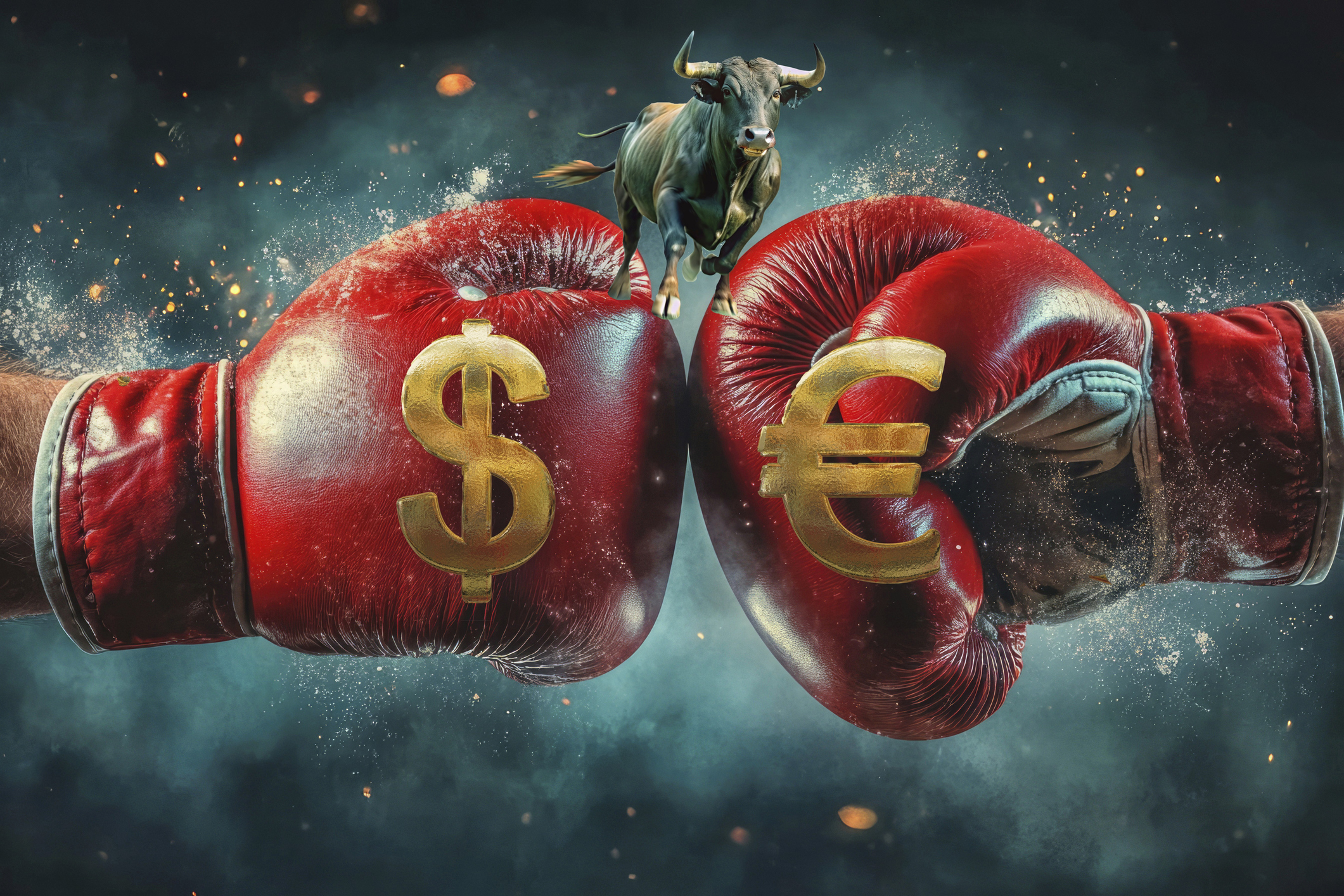 Dow Soars 588 Points as Trump Retreats: Stock Market Today
Dow Soars 588 Points as Trump Retreats: Stock Market TodayAnother up and down day ends on high notes for investors, traders, speculators and Greenland.
-
 Stocks Struggle for Gains to Start 2026: Stock Market Today
Stocks Struggle for Gains to Start 2026: Stock Market TodayIt's not quite the end of the world as we know it, but Warren Buffett is no longer the CEO of Berkshire Hathaway.
-
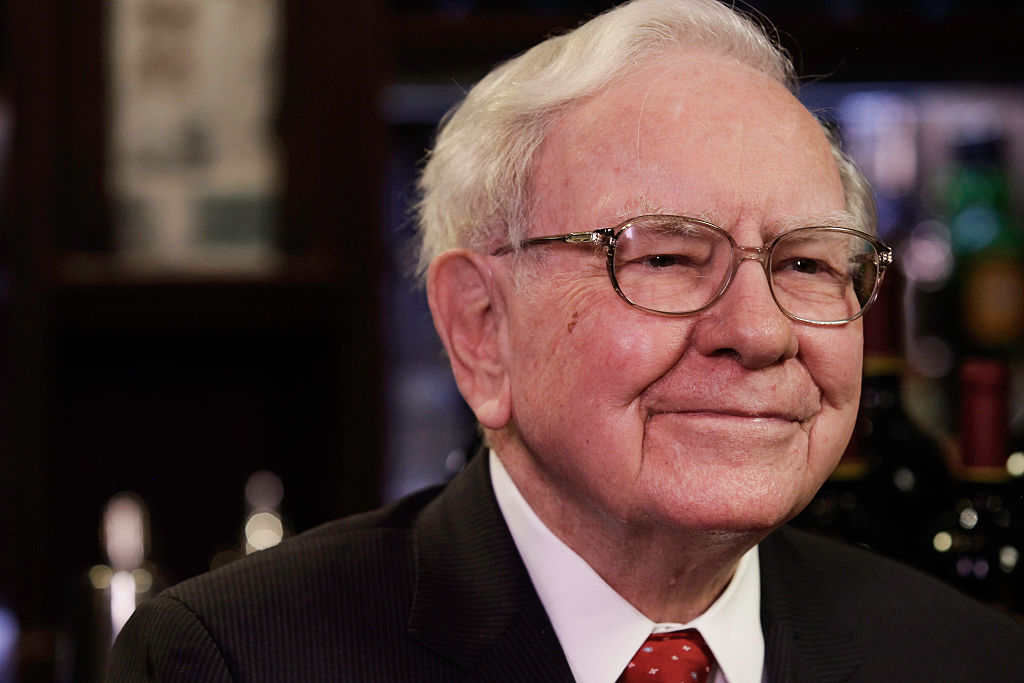 What Made Warren Buffett's Career So Remarkable
What Made Warren Buffett's Career So RemarkableWhat made the ‘Oracle of Omaha’ great, and who could be next as king or queen of investing?
-
 Risk Is On Again, Dow Jumps 381 Points: Stock Market Today
Risk Is On Again, Dow Jumps 381 Points: Stock Market TodayThe stock market started the week strong on signs the government shutdown could soon be over.
-
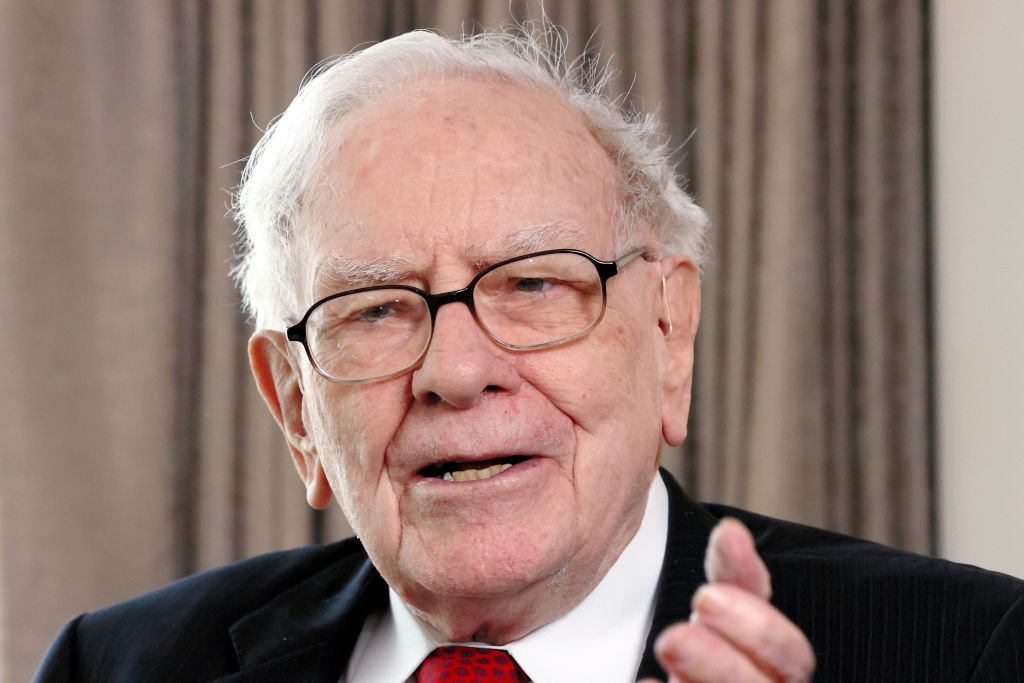 With Buffett Retiring, Should You Invest in a Berkshire Copycat?
With Buffett Retiring, Should You Invest in a Berkshire Copycat?Warren Buffett will step down at the end of this year. Should you explore one of a handful of Berkshire Hathaway clones or copycat funds?
-
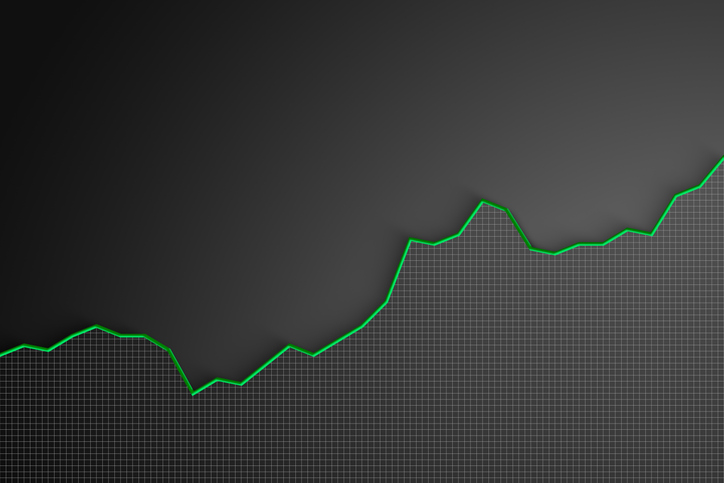 Stocks at New Highs as Shutdown Drags On: Stock Market Today
Stocks at New Highs as Shutdown Drags On: Stock Market TodayThe Nasdaq Composite, S&P 500 and Dow Jones Industrial Average all notched new record closes Thursday as tech stocks gained.
-
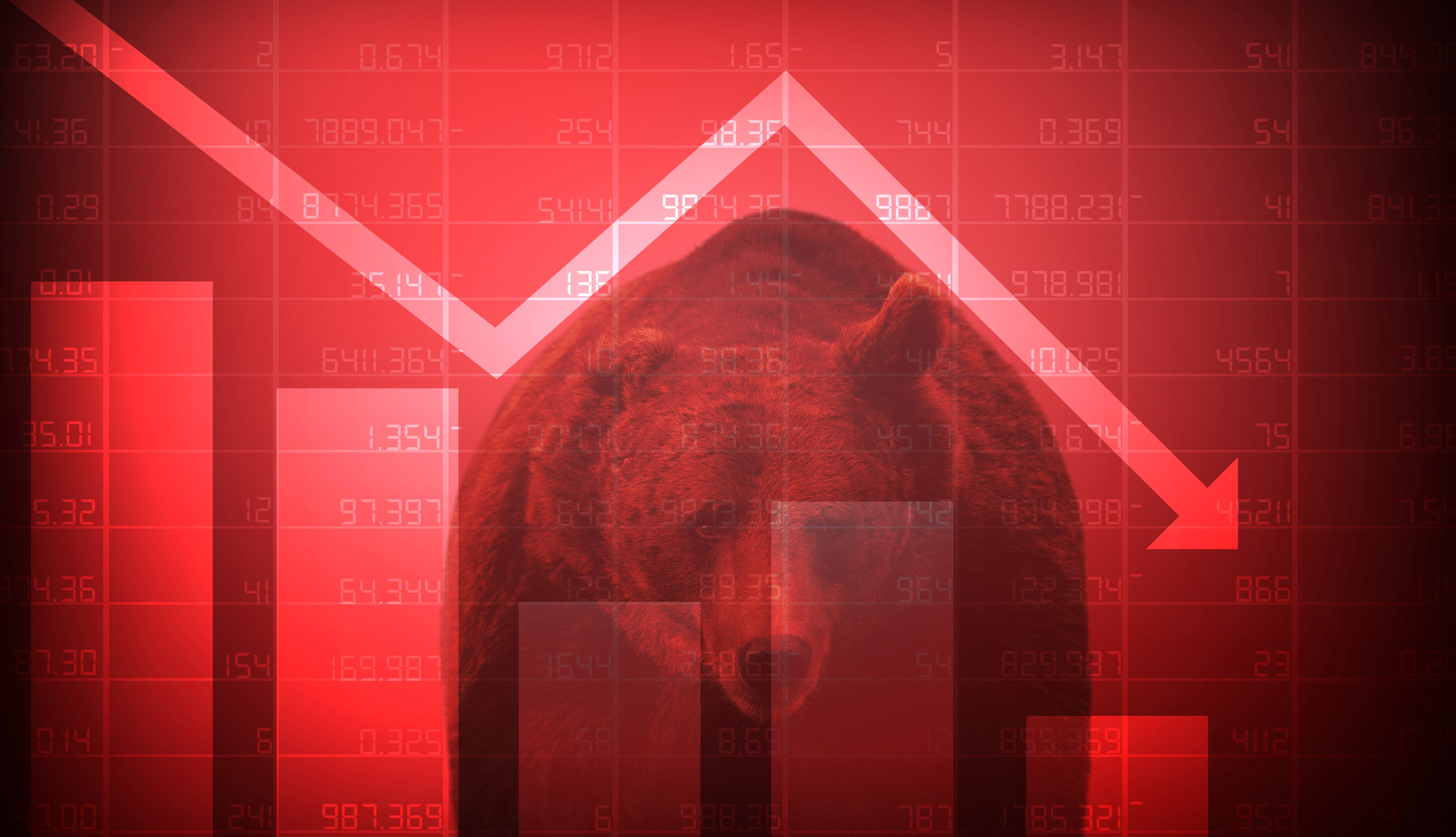 Stocks Slide to Start September: Stock Market Today
Stocks Slide to Start September: Stock Market TodaySeasonal trends suggest tough times for the stock market as we round into the end of the third quarter.
-
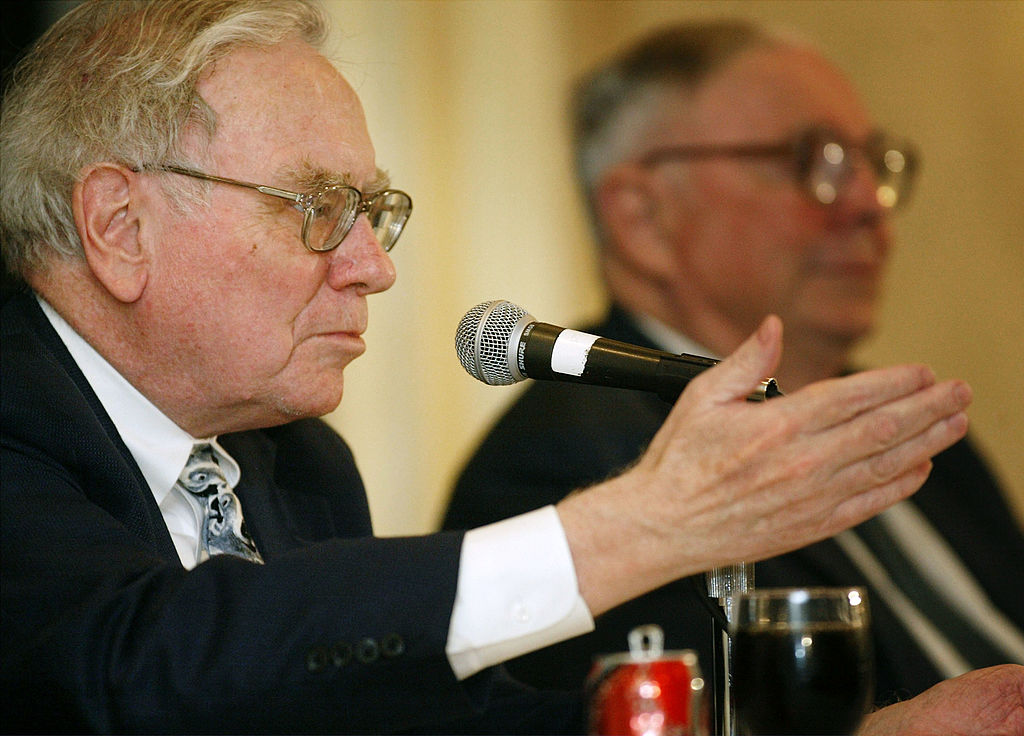 9 Warren Buffett Quotes for Investors to Live By
9 Warren Buffett Quotes for Investors to Live ByWarren Buffett transformed Berkshire Hathaway from a struggling textile firm to a sprawling conglomerate and investment vehicle. Here's how he did it.
